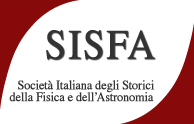Speaker
Description
The basic assumption of modern science is that the world has its own rationality and that man can understand it with some means made available by his mind. The origin of this idea must be sought in Greek Philosophy and the Stoics (especially the First Stoa) had a notable influence in defining it. In fact, they believed that the universe is the work of a reason, a logos, and from this they inferred that man, as endowed with articulated thought, has the faculty of formulating propositions such as to reflect cosmic events. Language is part of nature and allows man to express his relationship with the world. The Greeks - and the Stoics in particular - were the only ones in ancient times who used language as a technical tool to understand the world.
An example of this approach is the concept of motion, as an expression of change, which was studied by Greek Philosophy not with mathematical tools as did the science of 600/700 but precisely through language. Time represents a pivotal theme in this vision and the Stoics gave their contribution - even if we have little information of their research [2] and several borrowed from thinkers who oppose their philosophy [3]. In this presentation we will try to deepen and give a complete picture of what was the Stoic position on time [1, 7]; we will evaluate why in Diogenes Laertius time is indicated as an incorporeal entity (so not completely real) and then we will present the background ontology of the Stoics and in particular their idea of continuity in contrast with a discrete approach to reality typical of Epicurus and his followers [ 4, 5]. Through the theme of the continuum we will see the Stoic conception of the temporal instant and how they tried to answer Aristotle's aporias on time [8, 9]. Finally we will present the cosmological vision of the Stoics [6] which is based on a cyclic universe and which takes up some cosmological ideas currently being studied in the scientific community.
Bibliography:
1. Sambursky S.,1988, "Physics of the Stoics", Princeton Legacy Library.
2. Diogenes Laertius, 2017, "Lives of Eminent Philosophers", Cambridge University Press.
3. Plutarch, 1976, "Moralia, Volume XIII: Part 2: Stoic Essays", Harvard University Press.
4. Inwood B., 2003, "The Cambridge Companion of the Stoics", Cambridge University Press.
5. Long A, Sedely D., 1987, "The Ellenistic Philosophers", Cambridge University Press.
6. Long A., 2006, "The Stoics on World Conflagration and Everlasting Recurrence", in "From Epicurus to Epictetus: Studies in Hellenistic and Roman Philosophy", Oxford University Press, 256-282
7. Rist J., 1969, "Threee Stoic Views on Time" in "Stoic Philosophy", Cambridge University Press, 273-288.
8. Sorabji R., 1983, "Time, Creation and the Continuum: Theory in Antiquity and the Early Middle Age", Cornell University Press.
9. Aristotle, 1991, "The complete works of Aristotle: The revised Oxford Translation", Princeton University Press.

